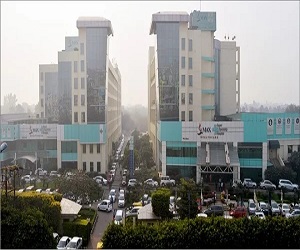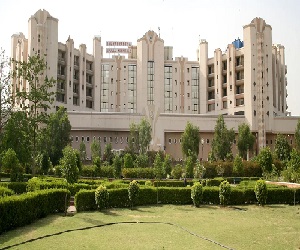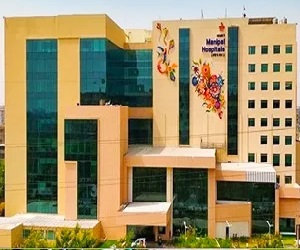Blood cancer, also known as hematologic cancer, arises from the abnormal growth of blood cells. This abnormality begins in the bone marrow, where blood cells are produced, and disrupts the normal functioning of these cells. Blood cancer can affect various organs and is associated with defects in blood cell production and/or blood component dysfunction in the lymphatic system and bone marrow.
Types of Blood Cancer
Blood cancer can be classified into several types based on the affected tissues or cell origins:
- Acute Leukemia: Originating in the bone marrow, acute leukemia leads to the production of abnormal white blood cells, hindering the bone marrow’s ability to produce normal red blood cells. There are two main types:
- Acute Lymphoblastic Leukaemia (ALL)
- Acute Myeloid Leukaemia (AML)
- These cancers are aggressive and can be fatal if not treated promptly. Diagnosis involves bone marrow tests such as flow cytometry, molecular testing, and microscopic examination.
- Non-Hodgkin Lymphoma: This cancer develops in the lymphatic system, which plays a crucial role in immune function. Lymphomas can affect any organ, but typically target the lymph nodes. They range from slow-growing to highly aggressive forms. Diagnosis typically involves a biopsy of the lymph nodes or affected organs.
- Chronic Lymphocytic Leukaemia (CLL): Closely related to lymphoma, CLL progresses more slowly and primarily affects the blood and bone marrow, but can also impact the liver, lymph nodes, and spleen. Diagnosis is based on blood sample flow cytometry and lymph node biopsy.
- Myeloma/Multiple Myeloma: These cancers originate from plasma cells in the bone marrow, crucial components of the immune system. Multiple myeloma can cause significant damage, including infections, anemia, bone fractures, and kidney problems. Diagnosis involves bone marrow tests, biopsies, and other blood tests.
Common Symptoms of Blood Cancer
- Fatigue and tiredness
- Body aches
- Weakness
- Fever or feeling feverish
- Excessive night sweats
- Weight loss
- Skin patches
- Nodular swelling
- Blurred vision
- Frequent infections
Treatment Options for Blood Cancer
The primary goal of blood cancer treatment is complete eradication of the disease.
Biological Therapy: Uses the body’s immune system to kill cancer cells.
- Chemotherapy: Involves powerful anti-cancer drugs to target and kill rapidly growing abnormal cells.
- Surgery: Includes bone marrow transplantation to replace damaged bone marrow with healthy stem cells.
Recovery from Blood Cancer
Successful recovery is possible for many patients with appropriate treatment. Post-treatment care involves maintaining a healthy lifestyle, adhering to medical advice, and undergoing regular checkups to monitor for complications and ensure ongoing health.
Blood Cancer Treatment cost in India are as follow
| Treatment | Cost in USD | Stay in Hospital |
| Blood Cancer Treatment | 11500-17500 | 3-4 Weeks |
| Aplastic Anemia Treatment | 14500-19500 | 3-4 Weeks |
| Sickle Cell Anemia Treatment | 14500-19500 | 3-4 Weeks |
| Multiple Sclerosis Treatment | 5500-6500 | 3-5 Days |














